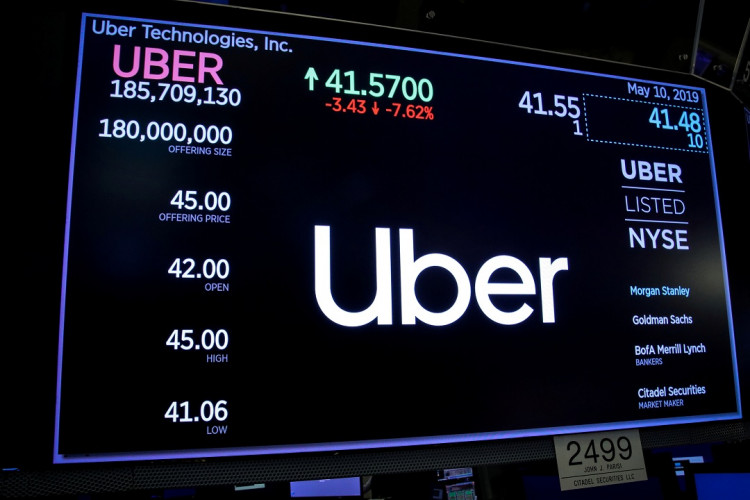The expiry of the lock-up period in Uber's shares caused quite a frenzy on Wednesday, sending the company's share prices down to record lows.The expiry meant that early investors and employees of the company could now convert their shares into real money, resulting in a number of newly minted millionaires.
By the end of Wednesday, Uber's stock dropped to around $26.96 after reaching of bottom of $25.58, or 40 percent lower than its IPO pricing of $45 per share. Uber was understandably one of the most actively traded companies during the day, with blocks of millions of shares sold by the company's major shareholders.
According to a filing with the US Securities and Exchange Commission (SEC), some of the biggest moves during the trading day included Goldman Sachs selling 2 million of its Uber shares. Several chunks of shares were also sold throughout the day, with the biggest one being a block of 7.75 million shares. During its IPO, Uber had sold a total of 1.7 billion shares to the market.
During the same day, Uber drivers throughout California were protesting the share-selling frenzy. The coordinated protests are aimed at making people aware of the possible increase in disparity between the newly wealthy and the struggling workers in the state. The influx of new money will likely exacerbate the state's already devastating housing crisis as more tech millions could decide to scoop up the remaining affordable housing in the region.
One of the protests was held just outside of Alphabet's Google Ventures office in San Francisco. The venture capital branch currently owns Uber shares estimated to be worth more than $5 billion. According to one protester, there should be no reason that Google and its employees will be making millions while they become homeless.
Other protest locations on Wednesday include the outside of the home of Uber's founder Garret Camp in Beverly Hills. The last location was located outside the home of venture capitalists Bill Gurley in Atherton.
Uber's big hit in Wall Street and the ongoing driver protests had been compounded by its legal battle in its home state. The state of California, through Governor Gavin Newsom, had signed new legislation in September that will force ride-hailing companies to reclassify their drivers as employees instead of being independent contractors.
Both Lyft and Uber have mentioned that they will do everything they can to fight the new law. Uber even launched a $30 million initiative aimed at bringing the new legislation to a vote before the year ends.






